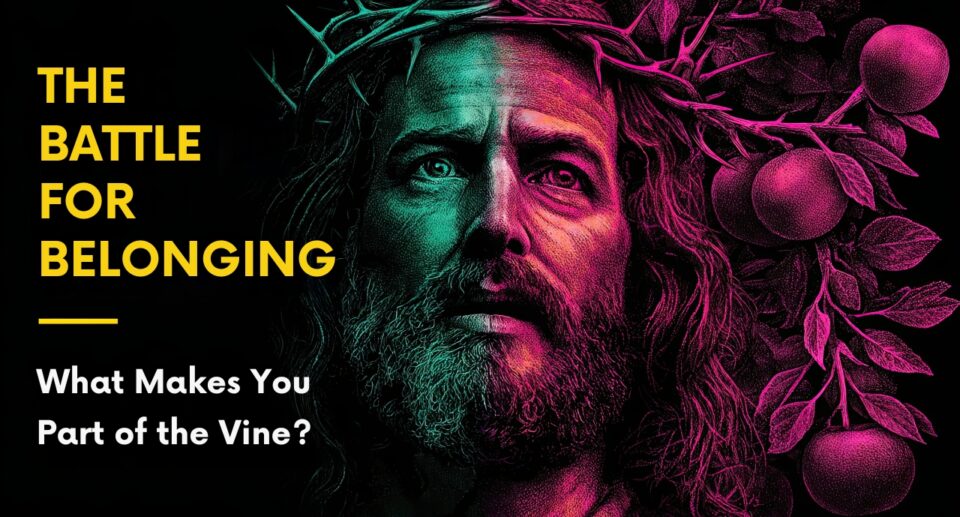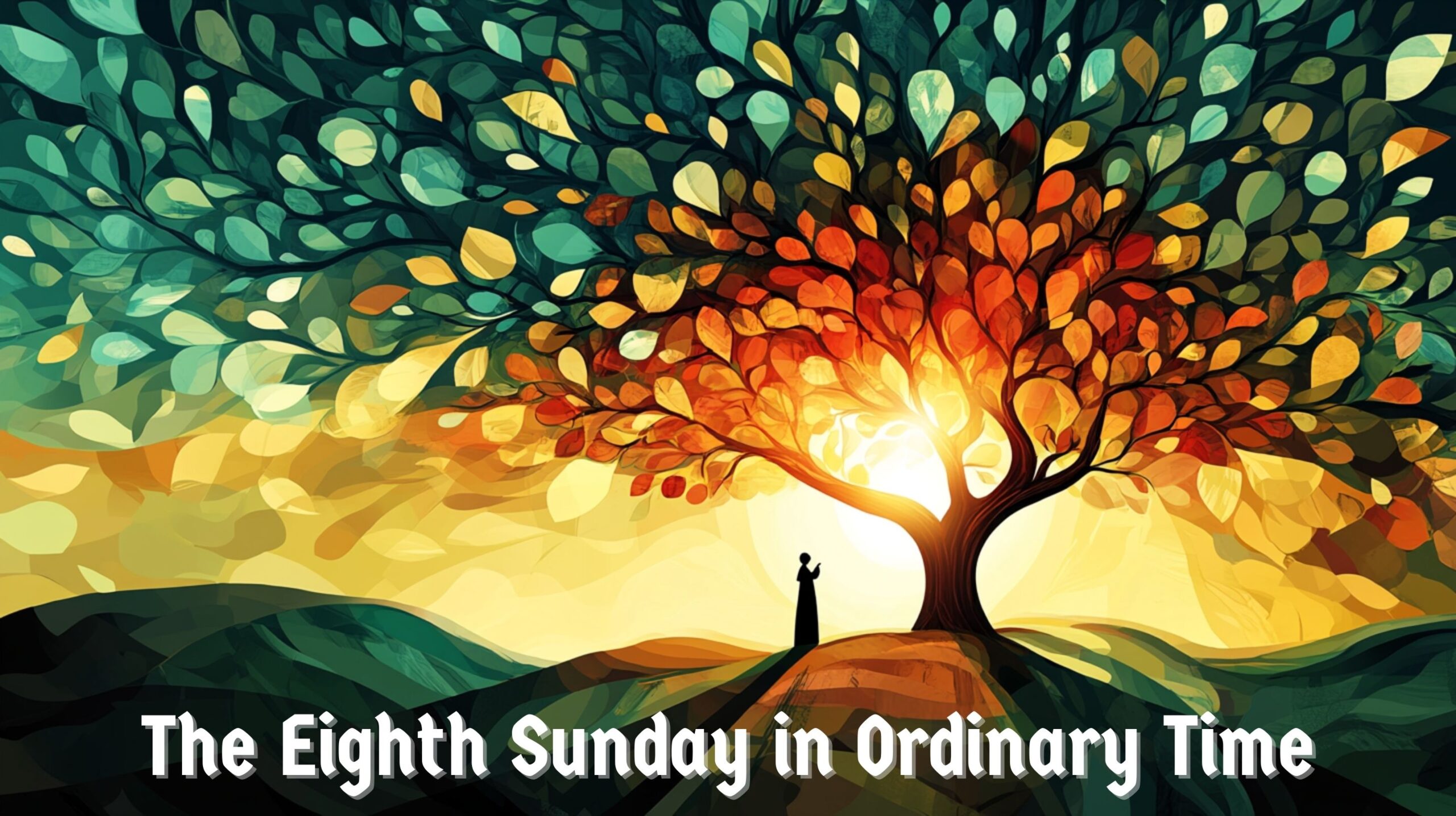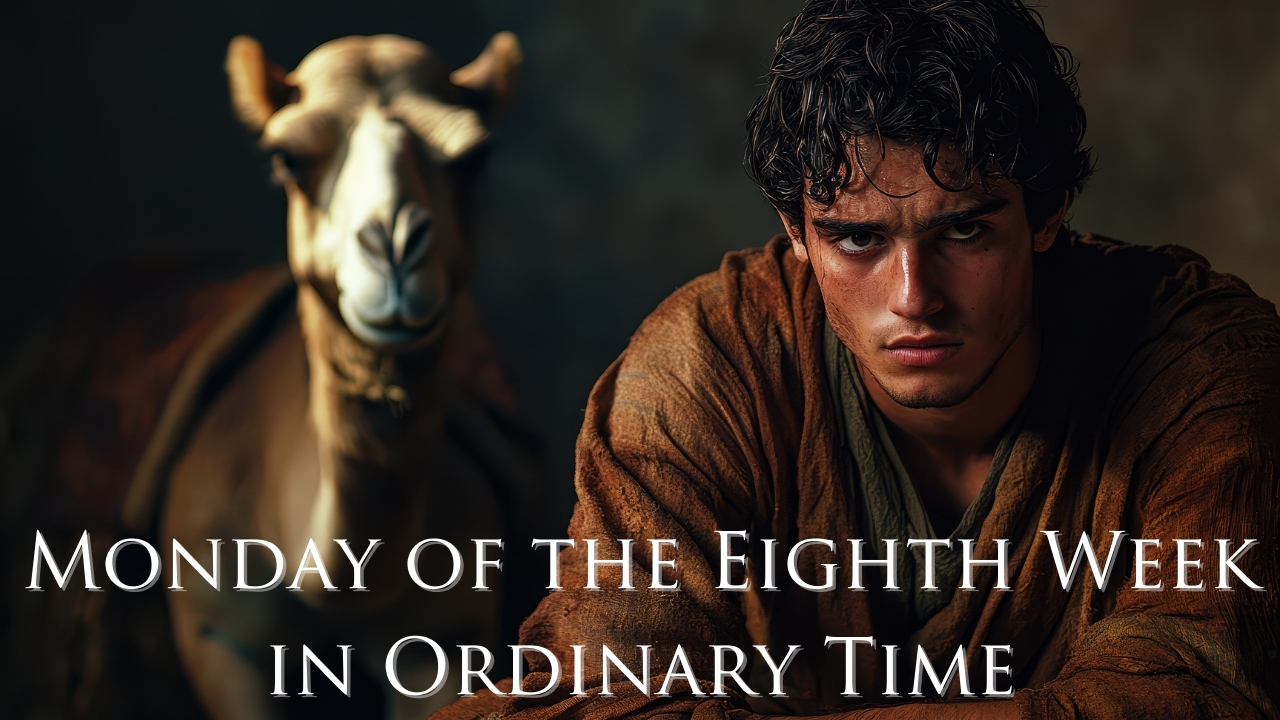The Scandal of Grace: When God Breaks His Own Rules | Daily Readings | May 22, 2025

May 22, 2025 – Daily Catholic Lectionary Readings for Thursday of the Fifth Week of Easter.
God was coloring outside the lines of His own revelation. When Gentiles began receiving the Holy Spirit without first becoming culturally Jewish, the early church faced a theological earthquake. Was God contradicting Himself, or did their understanding of divine purposes need radical revision? The Jerusalem Council’s decision to embrace grace without cultural prerequisites revolutionized Christianity, transforming it from a Jewish sect into a global movement where diverse nations could “sing to the LORD a new song” without abandoning their cultural identities.
This cinematic reflection explores:
- How religious people inevitably create entry requirements beyond grace
- Why God’s action among the Gentiles threatened theological comfort zones
- What happens when we face evidence that God works outside our frameworks
- How Christ’s love creates unity without demanding uniformity
Readings: Acts 15:7-21; Psalm 96:1-2a, 2b-3, 10; John 15:9-11
Perfect for anyone questioning religious boundary markers, struggling with God’s work in unexpected places, or seeking to understand grace that transcends cultural and theological divisions.
#ScandalousGrace #NoDistinction #JerusalemCouncil #ThursdayReflection #FifthWeekEaster
Breaking Barriers: How Divine Love Demolishes Human Divisions
Imagine standing at the edge of an ancient council meeting, the air electric with tension. Respected leaders locked in fierce debate, the future of an entire movement hanging in the balance. This isn’t a scene from modern politics, it’s the Council of Jerusalem, perhaps the most pivotal moment in early Christianity’s expansion beyond its Jewish roots.
The controversy? Whether non-Jewish believers needed to adopt Jewish customs to be fully accepted into the community. At stake was nothing less than the nature of salvation itself – is it earned through cultural conformity and religious practices, or received purely as a gift of grace?
In today’s readings, we witness a revolutionary moment when the early church made the audacious decision to break with centuries of tradition in favor of something more expansive and radical: the primacy of God’s love over human barriers.
Peter’s testimony in Acts stands as a thunderclap of clarity amidst the storm of debate. “God, who knows the heart, showed that he accepted them by giving the Holy Spirit to them, just as he did to us.” Notice the profound significance of this statement. Peter doesn’t argue from tradition or even from scripture, he argues from observed experience of God’s action. The Spirit had already moved among the Gentiles, effectively rendering the theological debate moot. God had already decided the matter.
What makes Peter’s intervention so powerful is that he was the most unlikely advocate for this position. This is the same Peter who needed a disturbing vision of unclean animals and a divine voice commanding him to “kill and eat” before he would enter a Gentile home. The same Peter who was publicly called out by Paul for withdrawing from table fellowship with Gentiles when certain Jewish believers arrived.
Yet here he stands, transformed by his encounters with the living God, declaring that imposing cultural demands on Gentile believers would be “putting a yoke on the necks of the disciples that neither our ancestors nor we have been able to bear.” The man once defined by his boundaries and prejudices now champions their dissolution.
This revolutionary council meeting echoes perfectly with the exuberant call of Psalm 96: “Sing to the LORD a new song; sing to the LORD, all the earth.” Not just Israel, not just the chosen people—but all the earth is invited to join this chorus. The psalmist demands we “proclaim his salvation day after day” and “declare his glory among the nations.”
Don’t miss the radical nature of this invitation. In an age where gods were seen as tribal and territorial, the psalmist envisions all peoples and nations acknowledging the universal reign of God. “The LORD is king!” isn’t just religious devotion, it’s a political statement challenging every other claim to ultimate authority.
And what is the foundation of this boundary-breaking vision? We find the answer in Jesus’ words from John’s Gospel: “As the Father has loved me, so have I loved you.” The love flowing between Father and Son, a love so profound and perfect that it constitutes the very nature of God, is now directed toward us. This divine love isn’t just sentiment; it’s transformative power.
Jesus says, “Now remain in my love.” The Greek word for “remain” (menō) implies dwelling, abiding, continuing in a state. It suggests not a momentary alignment but a sustained orientation of one’s entire being. When we remain in this love, Jesus promises something extraordinary: “My joy may be in you and your joy may be complete.”
Notice the progression: love leads to obedience, which leads to joy, not just any joy, but complete joy. The Greek word for “complete” (plēroō) suggests being filled to the brim, lacking nothing. This is no fleeting happiness but a profound state of being.
These readings, placed together in the lectionary, reveal a profound truth: God’s love demolishes the barriers that humanity creates. The council’s decision in Acts wasn’t just about dietary laws or circumcision; it was about recognizing that God’s love transcends our human categories and distinctions.
When James renders the final judgment at the council, he cites the prophet Amos, who foretold that God would rebuild David’s fallen tent “so that all the rest of humanity may seek the Lord, even all the Gentiles who bear my name.” The vision was always bigger than one nation or people. The plan was always more expansive than human minds could conceive.
What boundaries and barriers do we construct today? What walls of division do we maintain, perhaps believing they’re essential to preserving identity or tradition? How might God’s boundary-breaking love be challenging us to imagine a more expansive community?
The Council of Jerusalem teaches us that sometimes faithfulness doesn’t mean rigid adherence to the past but courageous openness to God’s future. Sometimes the most traditional thing we can do is to change.
This Easter season, as we contemplate resurrection and new life, these readings invite us to examine what needs to die in our own thinking and practice. What prejudices, what comfortable boundaries, what familiar divisions might God be calling us to surrender in favor of a more expansive vision of divine love?
Let us sing our new song with all the earth. Let us declare God’s salvation to all nations. And let us remain in the love that breaks every barrier, so that our joy may be complete.






